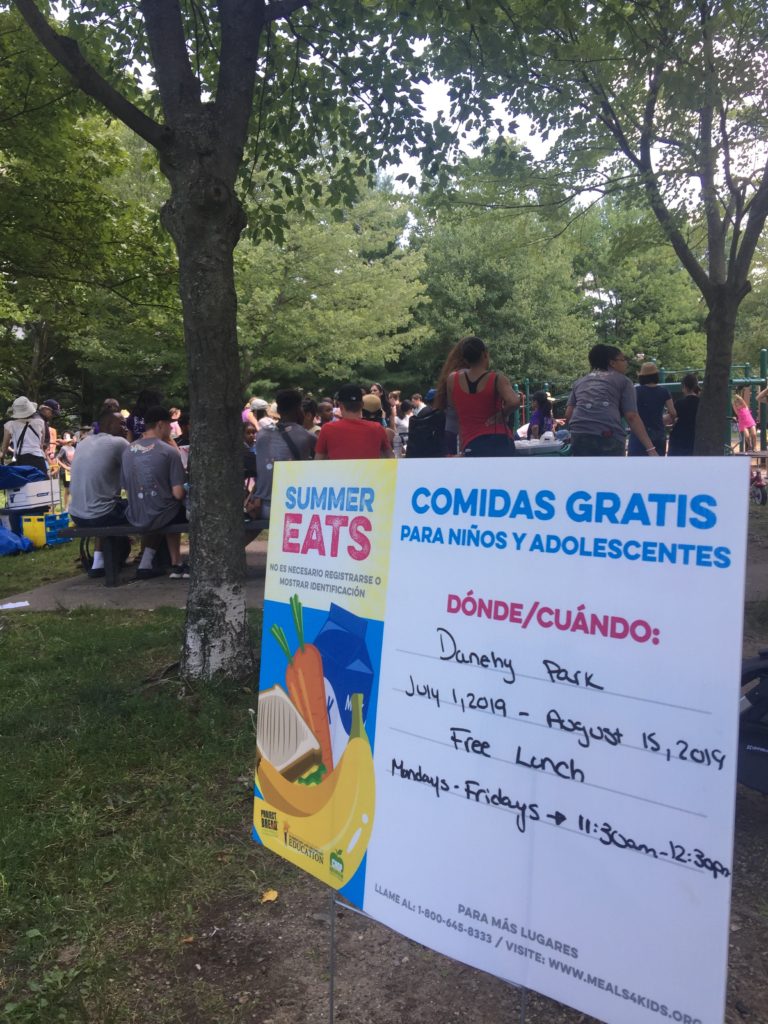
Following the 2016 presidential election, I ran for office because I knew that the Trump administration would wage a war on our most vulnerable communities, and that having local and state level leadership pushing back against future harmful policies would be critical. This Administration’s cruelty has known no bounds; we have seen asylum seekers separated from their families, LGBTQ+ rights clawed back, and women’s reproductive rights suddenly back on the table, the list is endless at this point. But it has been especially cruel to our low-income, immigrant community. Since being elected in 2017, I have dedicated my time and efforts both on the City Council and at Food For Free to find ways to protect our vulnerable communities against this Administration’s heartless agenda.
One of the most inhumane policies suggested by this Administration is the Public Charge Rule, which allows public charges (ie. residents who take advantage of federal programs like SNAP, WIC, etc.) to be denied admission to the U.S., or an adjustment of immigration status. To avoid future problems with their immigration status, countless vulnerable residents are being forced to make difficult choices between their future immigration status, and the vital food programs that help keep their families healthy and food-secure.
The Public Charge Rule has been rumored since early 2017, and is not currently adopted policy; in fact just weeks ago three federal judges rightfully blocked the Rule from taking effect, but the devastating consequences of the Public Charge Rule have already taken hold. Both enrollment rates in and overall spending on federal food and nutrition assistance programs have declined at a rapid rate, and the reduction in enrollment rates for these programs can be attributed to fears among immigrant communities, who worry they will be unable to stay in the U.S. if they receive public benefits (source).

Here in Cambridge since 2017, we have seen the number of residents signed up for WIC, a critical nutrition program for expecting and new mothers, decline each year. Additionally, the total amount of school meal debt in public schools has increased significantly during the past few school years, despite the recent introduction of free breakfast and elimination of reduced-cost lunches in favor of free lunches. Struggling immigrants, fearful of the repercussions they would face should they enroll in free meal programs is the likely cause of this debt increase. While the Rule does not apply to certain benefits, including WIC and subsidized school meal programs, misinformation is proving to be dangerous for countless immigrants, who cannot make ends meet without assistance. When paychecks are already stretched too thin, and food benefits are either inaccessible or clouded with confusion, the health and quality of life of immigrants are negatively impacted.

Having grown up in a food insecure household that relied on government benefits to get by, I knew I had to act when I saw how prevalent food insecurity was in my own children’s school. In 2013, I founded the Weekend Backpack Program. By sending meals home with over 600 students on Friday afternoons, the Weekend Backpack Program ensures that pupils who depend on school meals return to school on Monday with hungry minds, not hungry stomachs. Outside of the school year, I’ve worked to implement Free Summer Farmer’s Markets in City parks to offer fresh, nutritious food to all who need it. To further expand food access for children during the summer, I successfully worked with Project Bread and our Human Services Department to fund more summer meal program sites in locations easily accessible to high-need neighborhoods, and where children already are in the summer: movie nights, basketball leagues, City libraries, and right onsite at public housing.

As this type of cruelty that denies the most vulnerable members of our community access to healthy food is characteristic of this Administration, it has been crucial to specifically design, or actively work to expand emergency food programs that do not require forms or proof of income eligibility. By not requiring identification, immigrants are able to use these resources free from future scrutiny.
When the interests and needs of our neighbors are neglected and undermined by a governmental office meant to protect us, responsibility falls on officials at every level of government to emerge as leaders. As the Federal Courts determine the legality of the Public Charge Rule, the immorality of it is clear, and we, as municipal officials, are empowered to subvert harmful policies and fill in any resource gaps during this time of uncertainty. By using our direct knowledge of our local communities, our municipal powers, and our nearby resources, like Food For Free, we possess the unique ability to create small-scale yet meaningful change for vulnerable members of our population. In 2017, I ran for public office to safeguard the City I love and the people within it from cruel regulations, and will continue to do so, should I be given the privilege of serving a second term on the City Council.
